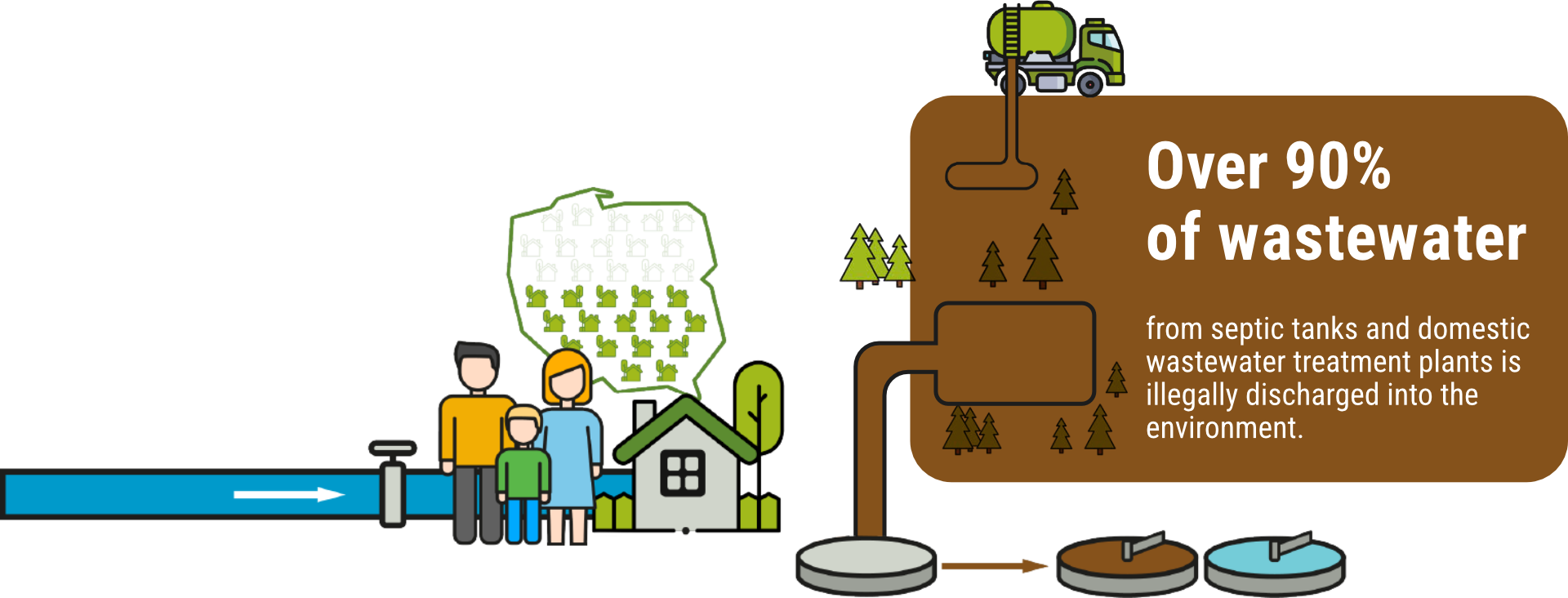Waste water management and environmental protection
Nearly half of residential buildings in Poland are not connected to the s, housing over 10 million people who are forced to use septic tanks and domestic wastewater treatment plants. Over 90% of the waste from these tanks is illegally discharged into the environment, with an estimated value of around 10 billion Polish złoty annually, negatively impacting the environment.
Key to an efficient system of managing transported wastewater are wastewater discharge point stations, of which there are approximately 2,500 in Poland. Unfortunately, most of them face technological delays and do not meet the requirements of the regulation issued by the Minister of Infrastructure on October 17, 2002, regarding the conditions for introducing wastewater into wastewater discharge point station.
According to current Polish regulations, these stations should be equipped with components that allow for the measurement of the volume of transported wastewater, hermetic discharge, and separation of solid pollutants. The wastewater entering the treatment plants should be recorded and described.

Study of wastewater discharge point station
In 2023, the company Scieki Polskie together with the Bank Gospodarstwa Krajowego and the Instytut Edukacji Środowiskowej (Institute of Environmental Education), conducted a study of wastewater discharge point station, involving 383 entities – over 16% of all wastewater discharge point station in Poland. The study revealed that almost 8% of the participating wastewater discharge point stations do not monitor the origin of the transported wastewater. Additionally, 89% of the surveyed wastewater discharge point stations do not meet legal requirements regarding confirming wastewater discharges.
12.38% of the surveyed wastewater discharge point stations do not have a flow meter installed and are unable to measure the transported wastewater. Over 13% of the participating point stations admitted to not keeping a register of leaks in the wastewater circuit. The study also found that over 45% of the surveyed containerized wastewater discharge point stations are not equipped with elements for separating solid pollutants.
